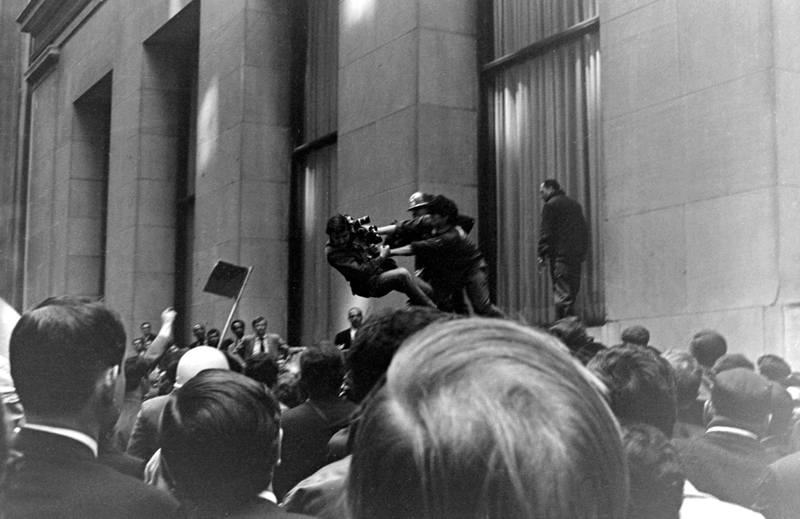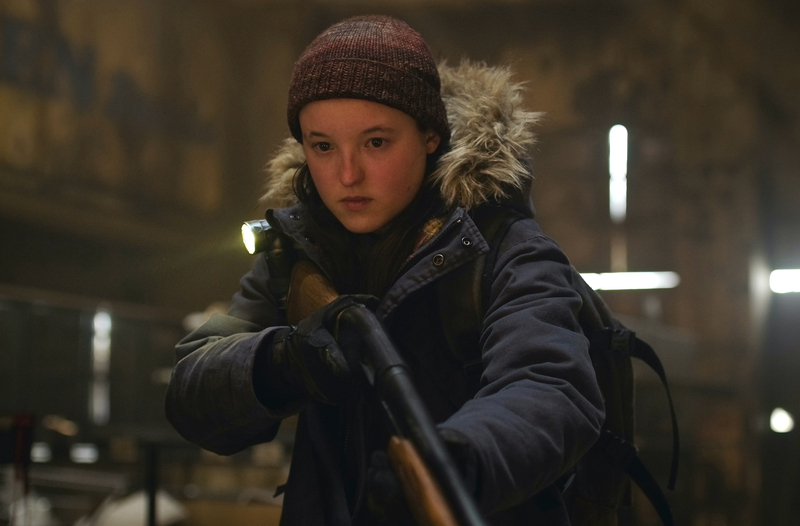
How a Riot Redefined Class and Culture Wars
MOVIE REVIEW
Hard Hat Riot
–
Genre: Documentary, History, Politics
Year Released: 2025
Runtime: 1h 30m
Director(s): Marc Levin
Where to Watch: airing on PBS (check local listings), and streaming on the PBS app, PBS.org, and PBS Documentaries on Prime Video on September 30, 2025
RAVING REVIEW: HARD HAT RIOT is more than a historical documentary—it’s a time capsule that reopens a wound still visible in the American political landscape. Directed by Marc Levin and premiering September 30, 2025, on PBS’s American Experience, the film revisits May 8, 1970, when New York City’s streets became a battlefield between construction workers and student anti-war demonstrators. On its surface, it was a violent clash; in retrospect, it was a pivotal cultural and political rupture that continues to echo through modern debates on patriotism, class identity, and dissent.
The film anchors itself in the volatile world of the early 1970s. With the Vietnam War escalating into Cambodia, the country was already frayed. The Kent State shootings, where National Guardsmen killed four students, ignited a wave of outrage across campuses. Just days later, Manhattan became another site of confrontation when construction workers, many of whom were employed on the rising World Trade Center, turned their anger toward young protesters gathered in the heart of Wall Street. The result was an eruption of violence that shocked the city and reframed how blue-collar America viewed its role in the broader national narrative.
Levin’s direction strikes a balance between immediacy and perspective. Using archival footage—some of which has never been seen by the public—the documentary captures both the chaos of the moment and the tensions that led to it. Particularly striking is the inclusion of film material shot by then-NYU students and professors, including Martin Scorsese, Harvey Keitel, and Jay Cocks, who inadvertently documented a pivotal moment in political consciousness. The presence of such iconic names lends the film a fascinating cinematic footnote, but more importantly, it underscores how art, protest, and history can become intertwined.
Equally compelling are the firsthand testimonies. Workers, students, political aides, and historians recount their perspectives, offering a rare duality. One of the documentary’s strengths is its refusal to cast heroes and villains. Construction workers describe their anger at students waving Vietcong flags while their own sons and brothers were dying overseas. Students recall their shock at being beaten by men they assumed were fellow citizens fighting for justice. The juxtaposition of these memories, told decades later, fosters empathy while highlighting just how deep and enduring those divides became.
The film also situates the riot within the broader decline and transformation of New York City. Economic strain, urban strikes, and crime marked the early ’70s. Mayor John Lindsay’s vision of “Fun City” was faltering, while President Richard Nixon was seeking to harness blue-collar resentment into a political strategy. The riot became more than a local event—it was a symbol. What had been a reliably Democratic working class began shifting toward Republican identification, altering the trajectory of American politics.
The documentary is based on David Paul Kuhn’s book, The Hardhat Riot: Nixon, New York City, and the Dawn of the White Working-Class Revolution. Kuhn also serves as co-producer, ensuring the adaptation remains rooted in the nuanced historical analysis he has written. Levin and co-writer Daphne Pinkerson translate that into a visually dynamic narrative, weaving in interviews with participants such as Billy Abbate, a steamfitter who joined the clashes, and Michael Belknap, a lawyer caught in the melee. Their recollections humanize the abstract concept of a “culture war,” making clear that for many, it was simply a matter of being in the wrong place—or the right one—at a moment of fury.
Some viewers may wish the film had delved further into the connection between 1970 and today. While the parallels to current political and cultural divisions are clear, they are left mostly for the audience to infer. The documentary refrains from overt commentary on modern protests or polarization, instead allowing history to speak for itself.
Nevertheless, HARD HAT RIOT succeeds as both education and warning. By showing the perspectives of both students and workers without judgment, it provides context that is sorely needed in an era where polarization often erases nuance. It demonstrates that the seeds of division are not new—they have simply grown in different soil. Watching this film, it’s impossible not to draw connections between then and now, whether in the debates over patriotism, protest, or the role of working-class America in shaping the political map.
In the end, what lingers is the realization that the riot was not an isolated outburst but a harbinger. It was a moment when the cultural and political compass shifted, when the voices of construction workers and the cries of students collided in a way that neither side could walk away from unchanged. Levin’s film ensures that the event is not forgotten, reminding us that history’s ruptures often ripple for generations. HARD HAT RIOT is sobering, urgent, and empathetic. It refuses to streamline, instead embracing the complexity of a moment that continues to define America. In doing so, it provides not just a window into the past but a mirror for the present.
Please visit https://linktr.ee/overlyhonestr for more reviews.
You can follow me on Letterboxd, Instagram, Twitter, and YouTube. My social media accounts can also be found on most platforms by searching for 'Overly Honest Reviews'.
I’m always happy to hear from my readers; please don't hesitate to say hello or send me any questions about movies.
[photo courtesy of GBH BOSTON, AMERICAN EXPERIENCE, PBS]
DISCLAIMER:
At Overly Honest Movie Reviews, we value honesty and transparency. Occasionally, we receive complimentary items for review, including DVDs, Blu-rays, CDs, Vinyl Records, Books, and more. We assure you that these arrangements do not influence our reviews, as we are committed to providing unbiased and sincere evaluations. We aim to help you make informed entertainment choices regardless of our relationship with distributors or producers.
Amazon Affiliate Links:
Additionally, this site contains Amazon affiliate links. If you purchase through these links, we may receive a commission. This affiliate arrangement does not affect our commitment to honest reviews and helps support our site. We appreciate your trust and support in navigating these links.



Average Rating